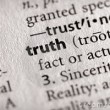When we write memoir, we’re creating a story, and re-creating moments in our lives rich in detail, experienced through the body. But sometimes we forget or don’t yet grasp just how much we need to bring forward those details so the reader can live that experience alongside us. Writing stories means that our task is to create “real life” experiences a reader can participate in, that reach into their hearts and minds. How do we do this trick? Create that kind of intimacy? The secret: write scenes … [Read more...]
Getting to What Matters Quickly and Succinctly
What’s your focus and what’s your point? These are the most important questions you can ask as you start to unwind the threads of your life in your memoir. Brevity forces us to think about the best words or brief phrases that express a complex story. When writers are asked, “What’s your memoir about?” Brooke and I observe that oftentimes the responses can be a meandering attempt to find the heart of the story, often missing the essence of the message they want to convey. Publishers and … [Read more...]
Why and How to Do More “Takeaway” in Memoir
Takeaway is the most important part of memoir writing that most memoirists don’t know how to do, or don’t do well or often enough. In my memoir classes, I share with students that I came to be so obsessed with takeaway first as an acquiring editor for Seal Press, because I knew as soon as I got to an editorial meeting, the marketing team would ask, “What’s the takeaway?” If it wasn’t apparent, the book wasn’t acquirable. Later, as I began to teach this genre and shepherd more authors through the … [Read more...]
Why to Ditch “I Remember” in Your Memoir
A memoir, by its very definition, is an account of your personal experience, which means it’s a compilation of what you remember. Because a memoirist’s entire book is a series of remembrances, the words “I remember,” especially when remembering from the vantage point of “now,” by which I mean the now of when you’re sitting down to write your story, are almost always redundant. Most of the time I find that “I remember” is easily deleted, as in: I remember when she came home that … [Read more...]
Practice Makes Perfect: Why Practicing the Art of Scene Writing Is the Path to Memoir Excellence
Scenes are the building blocks of memoir. Given this is so, you can’t really begin to write a great memoir—heck, even a good memoir—until you master scene. Linda Joy and I teach scene in nearly all the classes we teach. (In fact, we did a recent hour-long intensive on scene that’s available to view here.) And as much as we know how important it is for memoirists to wrap their minds around the mechanics of what’s involved, there’s no substitute for practice. In my opinion, practice comes in … [Read more...]
Zooming Out and In: How to Harness the Power of Your Memoir Camera Lens
In our six-month course, Linda Joy and I teach a class called “Write Your Memoir Like a Movie.” The point of this metaphor---memoir as movie**---is to teach students how to get behind the lens of their own memoir camera and to think like the director of their own story. Too often we see aspiring memoirists not using the full range of their camera lens, instead staying completely zoomed out in the Big Picture, reluctant to zoom in and create the details of the scene they’re asking their reader to … [Read more...]
Shades of Truth in Memoir Writing
I have met few memoirists who didn't have to struggle with issues of truth—how much truth to tell and how many details to include. "Do you use real names in a published memoir; how do you write scenes when you don't remember everything. What is truth anyway?" We all wear "the burden of truth" on our shoulders as we write our memoir. The disappointed faces of relatives who disagree or judge us for our writing appear in our imagination, the voices of angry relatives or friends shout at us. Not … [Read more...]
Takeaway: The Heart of Memoir Writing
When writers hear the word “takeaway” it evokes something specific. It speaks to what your reader gets from reading your work. What they walk away with. We originally started using the term "takeaway" in our memoir classes because of Brooke’s background as an acquiring editor, where every single manuscript evaluated for acquisition had to pass a single litmus test: Did the story have a takeaway? As we developed curriculum for the various memoir classes we teach together at … [Read more...]
Your Memoir Needs Good Boundaries
Just like a child, your memoir needs you to set boundaries. We’ve worked with countless memoirists over the years who are struggling either toward the beginning of their memoir because they’ve reached a certain place and they’re not sure where to go next, or because they’ve written so much content that seems disconnected and they can’t figure out how to turn it into something cohesive (the classic not being able to see the forest through the trees kind of experience). In our courses, we often … [Read more...]
Solutions to the 3 Most Common Questions re: Writing a Memoir
The three most common problems in writing a memoir: 1. How do I start? 2. What do I include? 3. Where does it all go? By starting with significant turning points you will soon find yourself thinking about important scenes that address your theme(s). Creating a structure that works helps you to figure out how to weave your scenes and moments together. It becomes easier to write a longer form work when we are focused and know how to plan out the trajectory of our writing. 1.List the … [Read more...]









